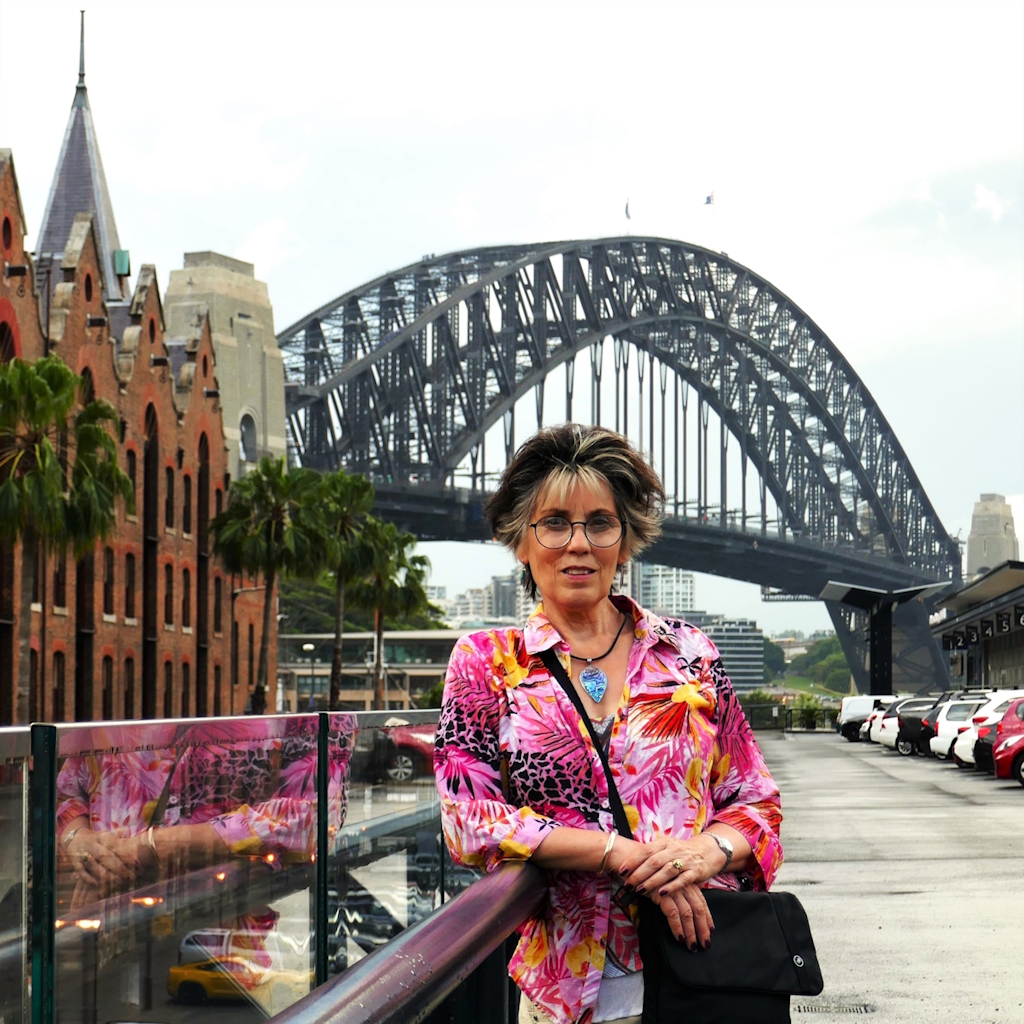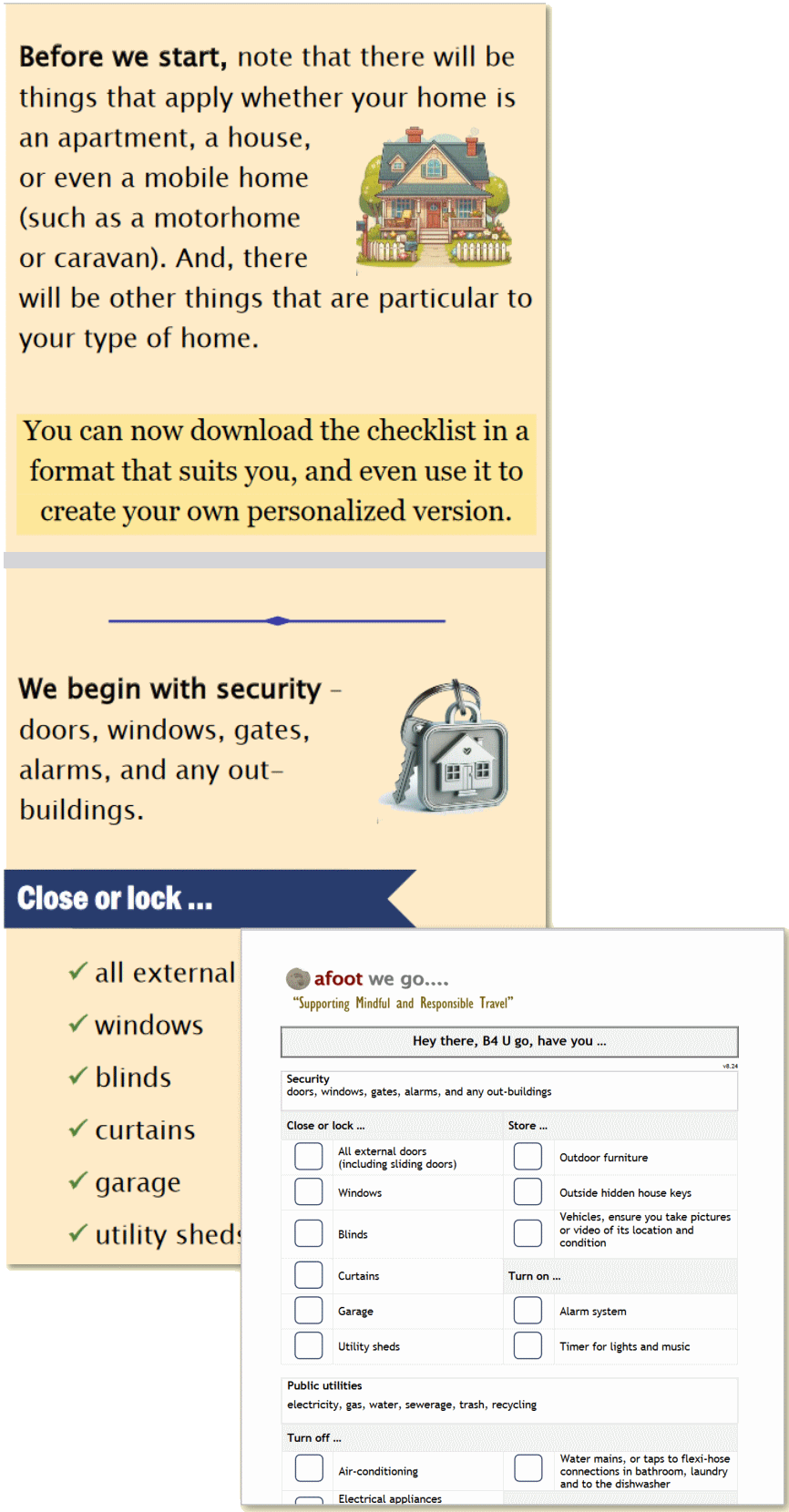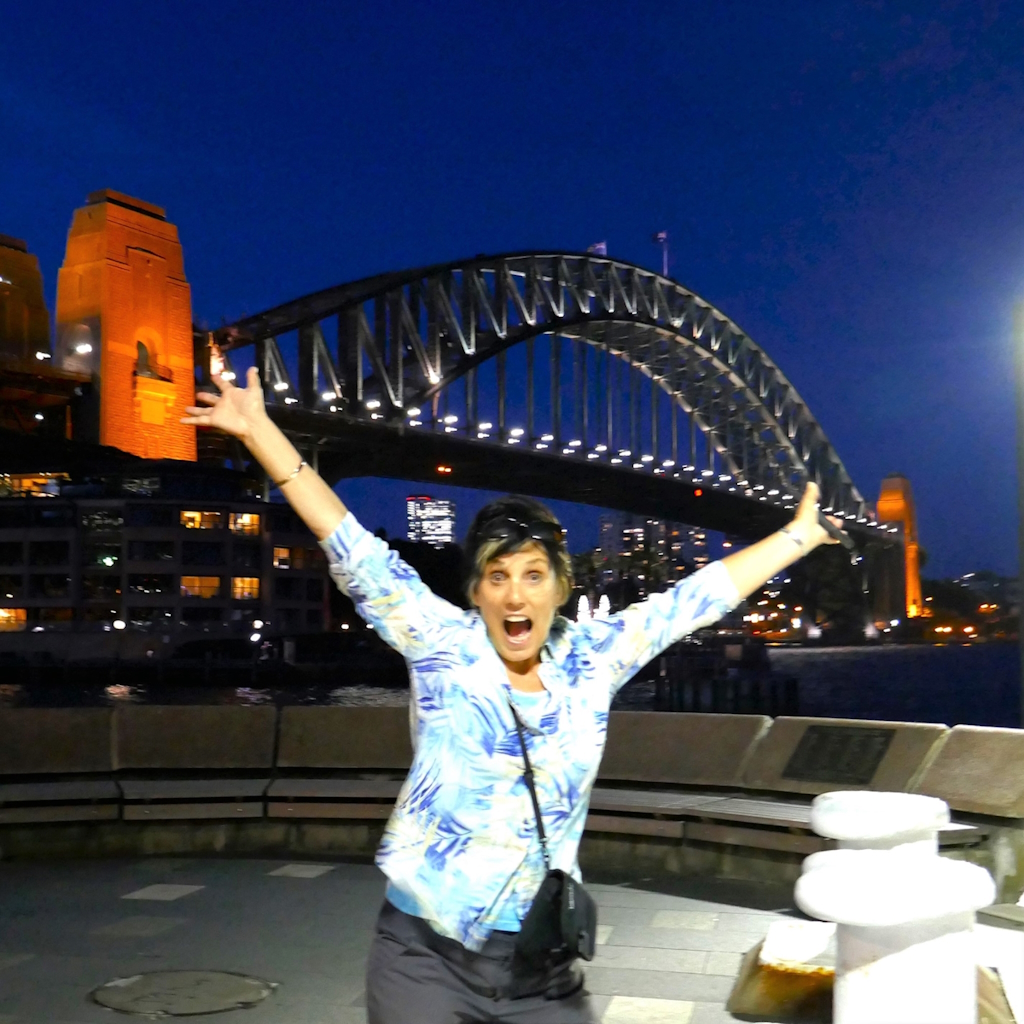afootwego-03-safety-&-travel-a-challenge
Safety & Travel – Can Be a Challenge
…for people who love to walk…
Supporting Mindful and Responsible Travel
Travel often takes us into the unknown – Travel Safety is about being sensible as we travel
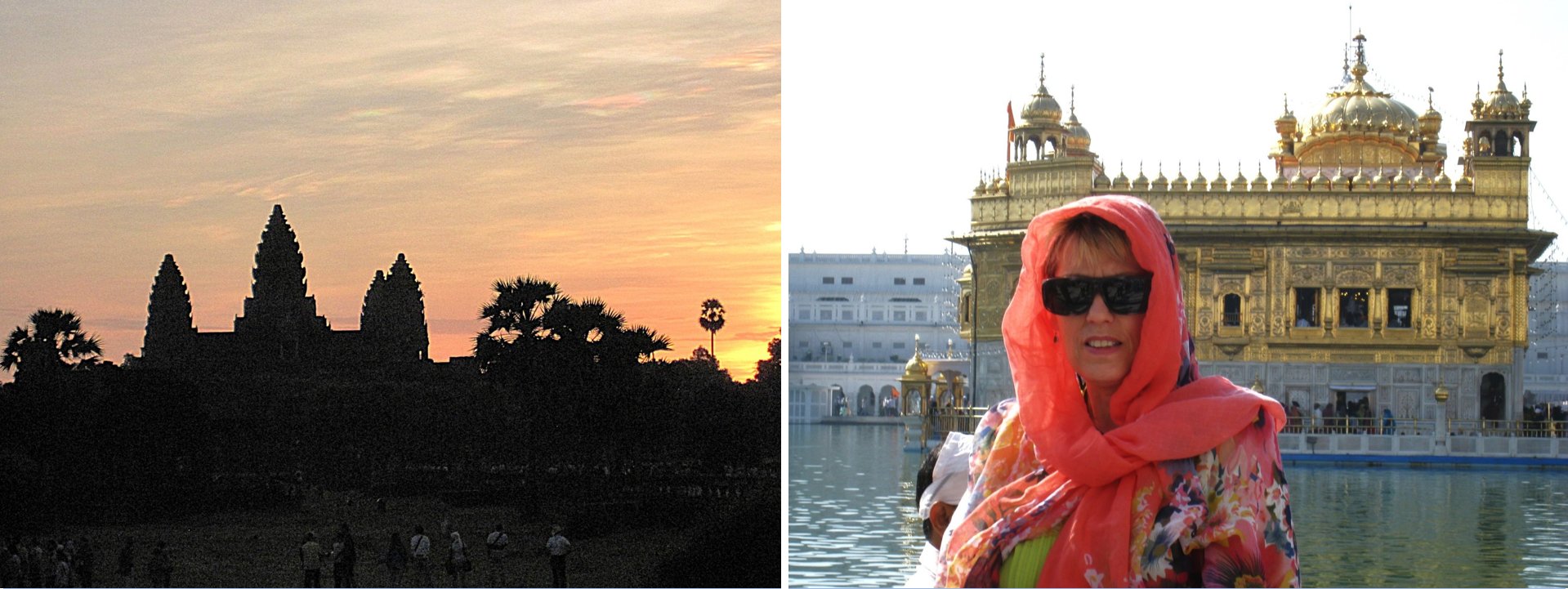
Safety & Travel – Can Be a Challenge
May 2025
9¼
Travel often takes us into the unknown. Travel safety is about being sensible as we travel, along with good planning and preparation. This can help us to avoid risks along the way, and avert becoming an ‘unwanted’ statistic.
A Quick Outline
In this Post, we shall explore:
- Safe Travels – something we all want
- Is Travel worth the risk?
- Things to be aware of as we travel
- ‘Be Prepared’ – advice from long ago
- My Personal safety
- Safety at an Airport/Transit Hub
- Destination safety
- Protecting my data and ID
- Safety at my accommodation
- Safety when I am out and about
- Your Take-outs
Safe Travels – something we all want
For many of us, our travel begins with a long-haul flight. Long-haul flights inevitably lead to dehydration, travel fatigue, and jet lag. And, when we land at our first destination, we are possibly in an airport that we don’t know.
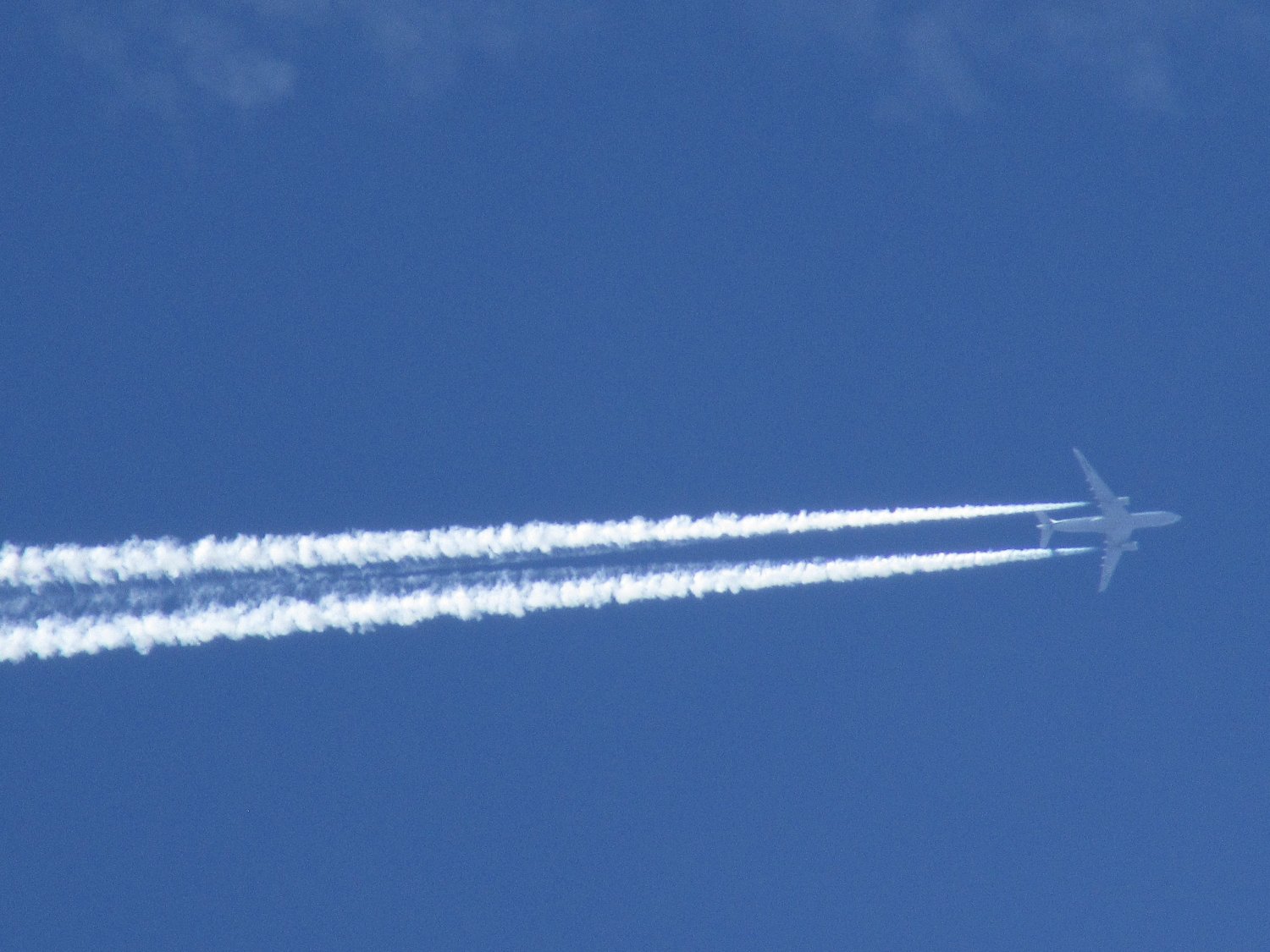
Remember: "Traveling West is best, East is the Beast!"
Unless we are mentally alert, we are likely to make mistakes, bad decisions, and forget things. In short, we can easily become vulnerable to all manner of events.
This could be as simple as getting lost, in a strange place, at night, where we are not fluent in the local language. Or, at a busy transport hub, we could become the intended victim of some form of scam, such as 'bump and lift ' (pick-pocketing).
Now, as we begin our travel adventure, if we are also carrying the effects of long-haul travel, particularly jet lag, our risk potential is high, possibly very high.
We may even be a 'walking accident, just waiting to happen '!
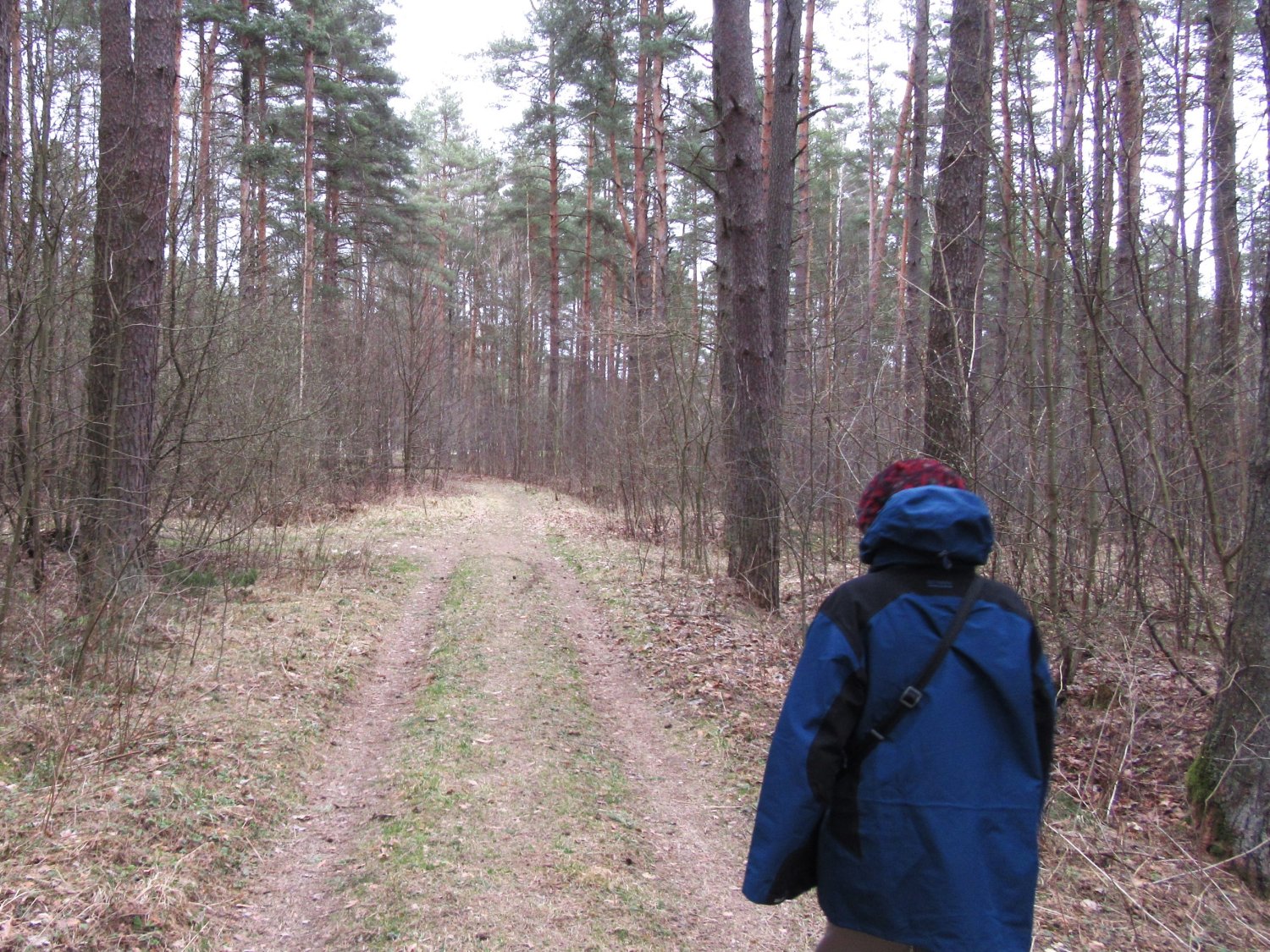
Is Travel worth the risk?
So, before we decide that the risk outweighs the reward, let’s ponder two key questions:
Q. Why do we travel?
Do any of these ring true for you?
Q. Will I be safe when I travel?
However, as none of us are invincible, we need to exercise common sense in what we do, and how we do it.
Let’s skip the debate about 'common sense ' (apparently some 'experts' consider it is not common!), and note that it means having 'good sense ' and making 'sound judgements '.
Whether traveling, or not, when we are sensible, we are less likely to expose ourselves to risks that threaten our safety.
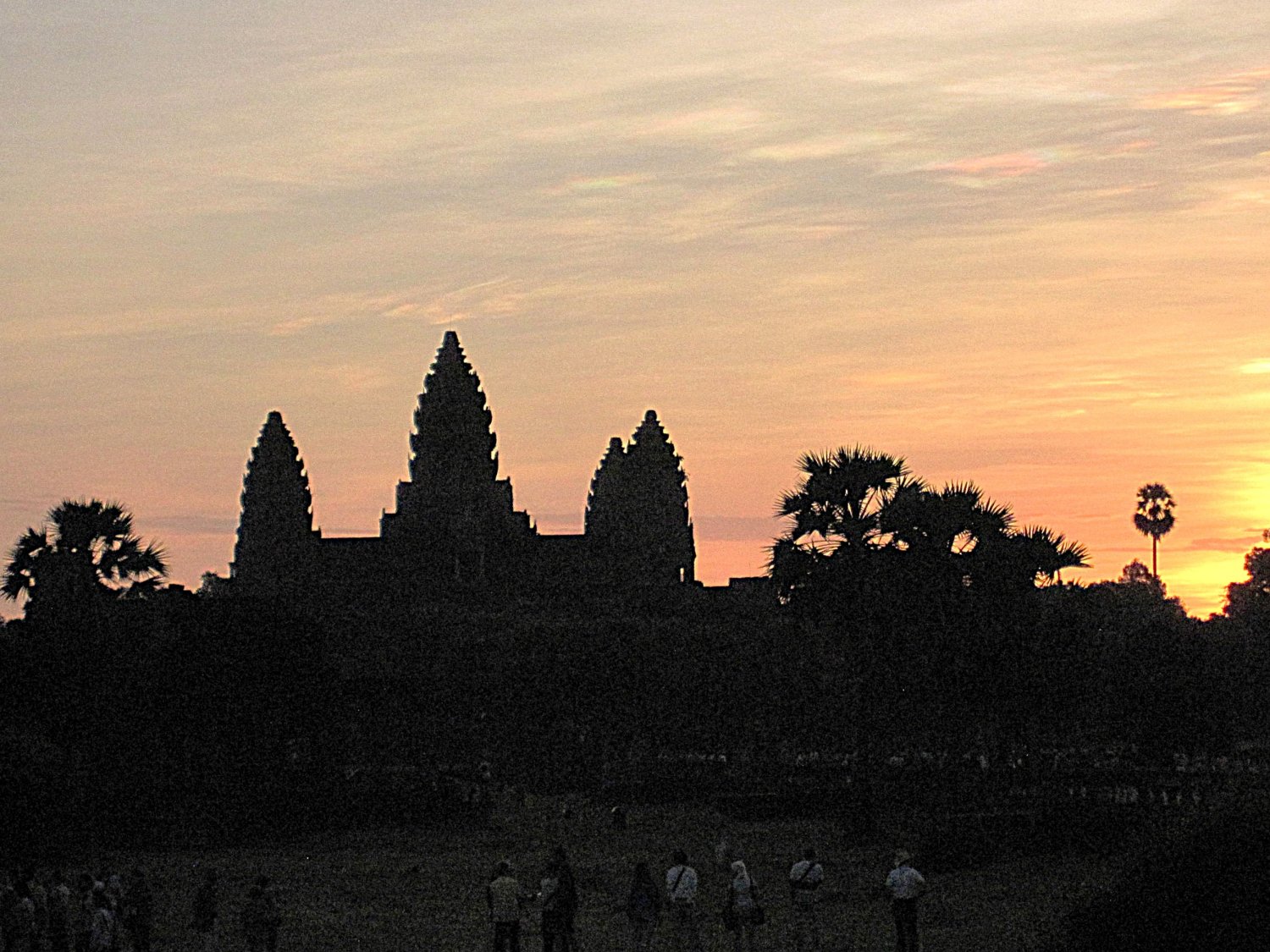
Things to be aware of as we travel
Travel often takes us to places where things are different, and unfamiliar.
Sometimes, the extent of the differences from what is our 'normal' can be huge, such as the city girl or guy, backpacking through the villages and small towns of a less-developed region, somewhere in a foreign country.
A multi-destination tour across (say) Europe, or around Asia, will likely mean we are settling into a new place every few days, possibly every day.
Change becomes the main constant in our routine, and constant change is challenging, sometimes stressful.
Even if we are taking a cruise, short or long, there are many new things to come to grips with, including finding our cabin, and navigating the maze of decks and corridors.
And, we also have to get used to the constant motion of being at sea, often referred to as getting our 'sea legs'.
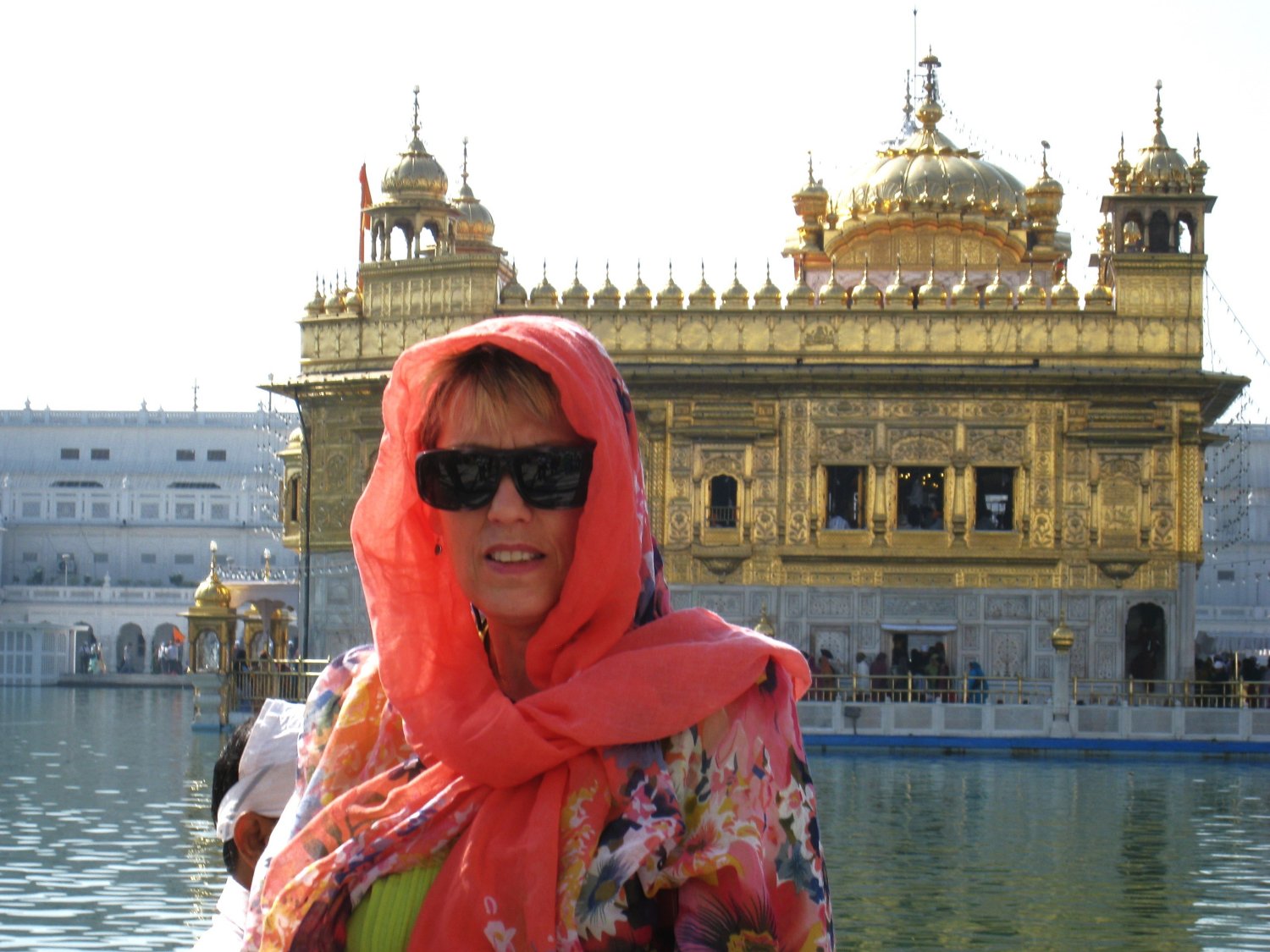
So, as we start out on our new travel adventure, however we are traveling, the chances are that we are confronted with having to take in, or try to take in, volumes of new information. At times, this can continue every day throughout our travels.
For some, this may cause 'brain (or 'cognitive') overload', as memories somehow become intermingled, leaving us confused about places and events.
The 'bottom line' here seems to be that traveling can be mentally taxing, or even exhausting. And that is before we consider any possible threats to our safety, that we may encounter along the way.
Sound planning and preparation is our best strategy for ensuring we do not become an 'unwanted' statistic during our travels.
‘Be Prepared’ – advice from long ago
According to Google, "Be Prepared " comes from Elton John’s 1994 song for The Lion King.
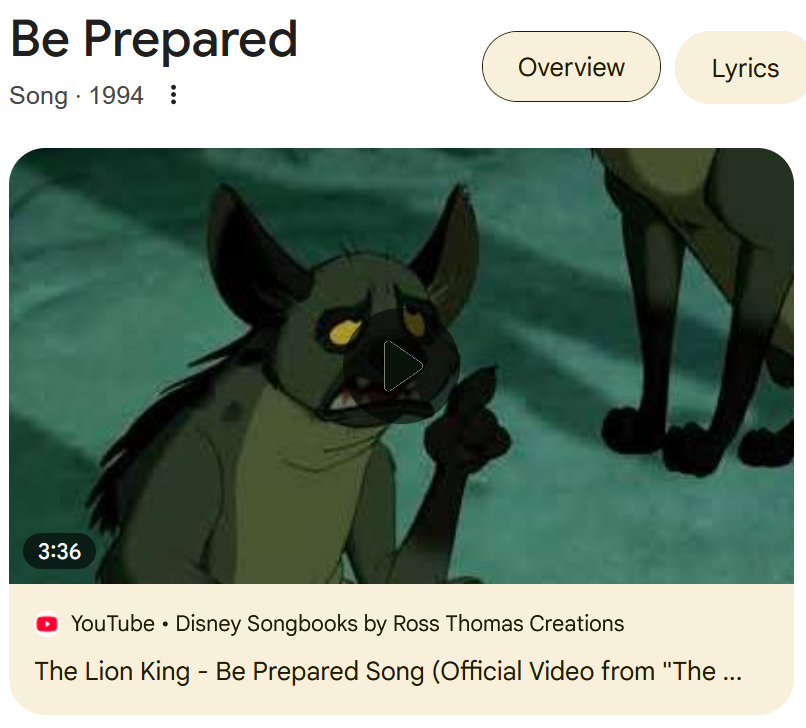
Whenever we decide to travel, amongst the first actions we should take is to find, or create, a travel checklist that we can use. This will help ensure that we do not overlook anything, whether important or small.
There are numerous web sources offering travel safety advice for travelers, especially when traveling abroad.
When it comes to safety, at any time, the old saying surely applies: "prevention is better than cure ". In other words, it is better to stop something bad from happening, than it is to deal with it after it has happened.
My personal approach, which I have developed over the years, is to organise my thinking about my travel safety into several clusters, as shown below.
My Personal safety
- blend in with the crowd, don’t draw attention to myself (yes – it can be a challenge when I am accompanied by a BIG bag )
- carry a personal safety alarm, and keep it in easy reach (in +20 years of travel, I have yet to need it, but I always carry it )
- as a failsafe, carry a whistle (this is a hang-over from bush-walking – it doesn’t need batteries, just a bit of ‘puff’)
- wherever I go, I need to look self-assured, to walk confident and tall (even if I am actually the opposite, I am less likely to be a target )
- keep a copy of my personal emergency details handy (a copy on my mobile phone, and a printed copy in my carry bag )
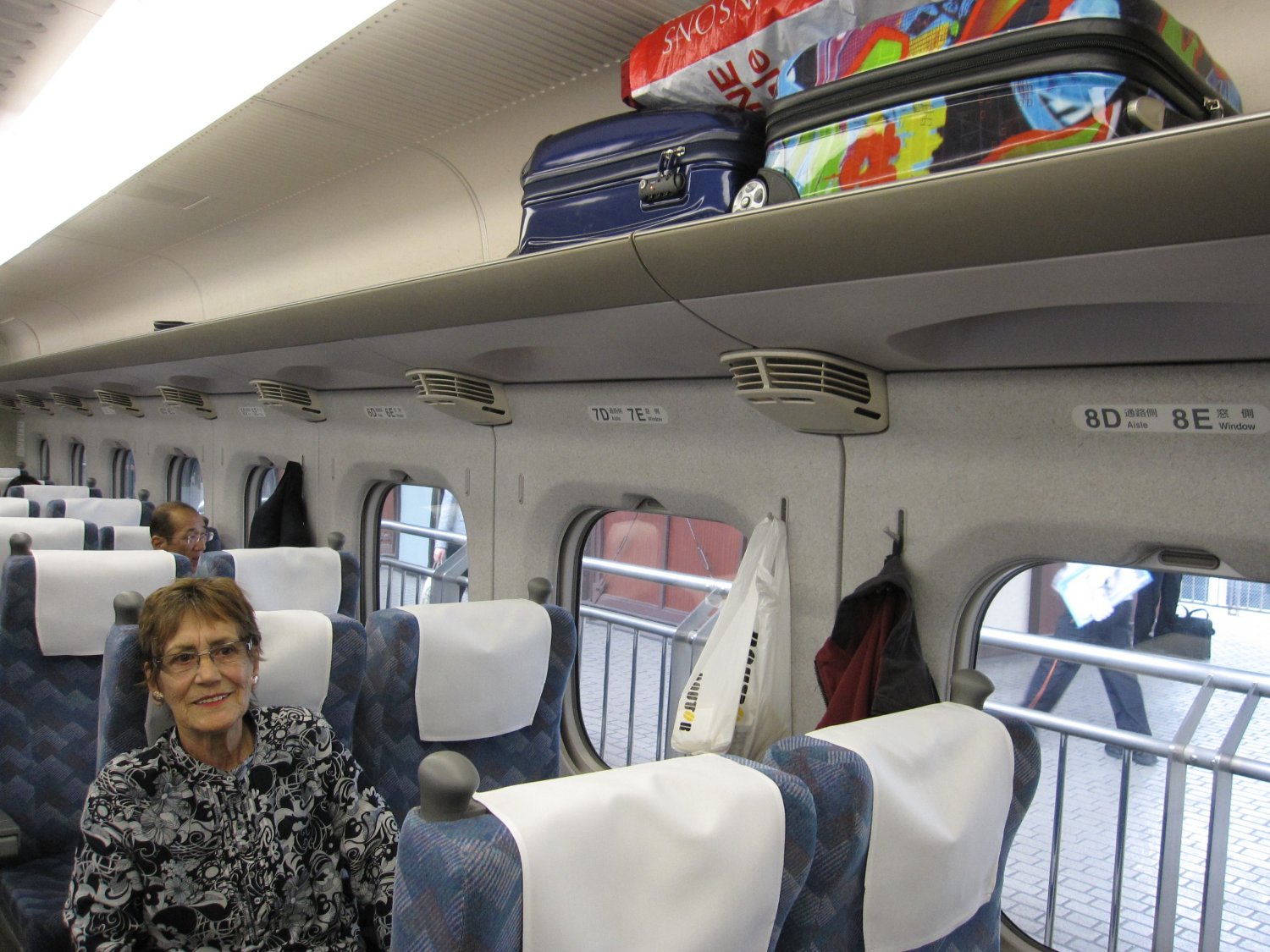
Safety at an Airport/Transit Hub
- always be aware and observant of those around me (but, don’t get distracted by a disturbance nearby, it could be a diversion )
- at the security check x-ray conveyor belt, I only put my valuables and laptop on when I am about to walk through the body scanner (this makes it less likely someone will try to collect my items !)
- for peace of mind, it is worth investing in travel luggage anti-theft deterrents, such as cable-ties on external zippers (I use a pin to unlock and re-use these )
- a conspicuous, highly-noticeable bag is less likely to be targeted for theft (such as the ‘grafitti’ bag, seen in the Shinkansen image above )
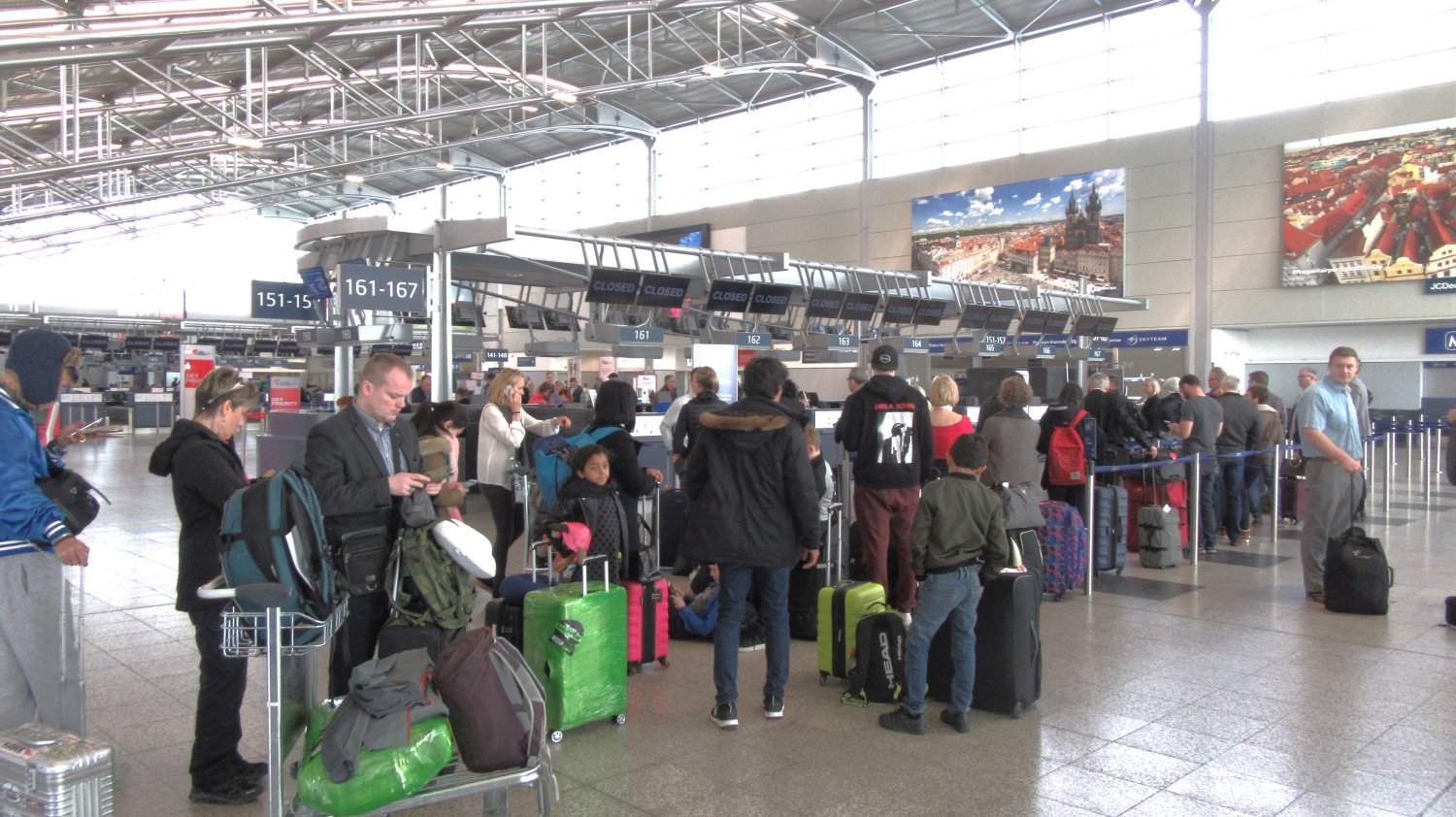
Destination safety
- research each of my destinations so I am aware of recent crime rates, unsafe areas, and common scams (it’s better to be informed, not ignorant, about these )
- use Google Earth to check routes to places like my accommodation, and nearby shops (when arriving in a new place, knowing exactly where to go is one less thing to stress about )
- on arrival, familiarise myself with any local transport hubs I will be using (knowing the access and exit points means I am not another lost, wandering (vulnerable) tourist )
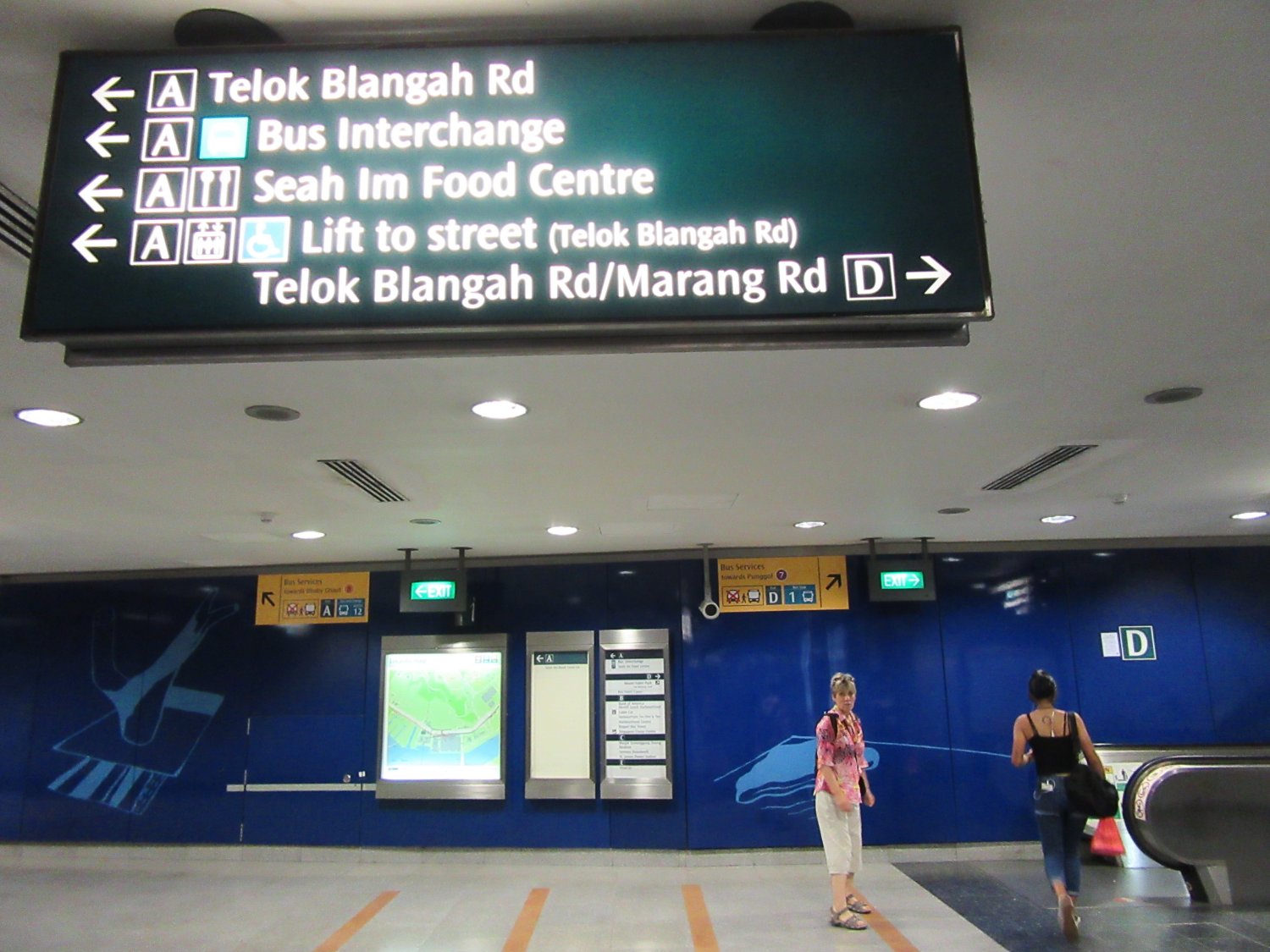
–
New Flight Rules for Lithium Batteries
Jet Lag – How We Can Manage It
Daily Routine & Travel – NOT Friends
Fitness for Travel – Let’s Just Do It!
Protecting my data and ID
- the obvious first action is to set up a reliable international VPN (these days, this is 'SOP' for travel; it can also be useful at home )
- ensure my mobile phone uses bio-metric recognition when it is turned on, or restarted (maybe I need to update my face ID ?)
- check that auto connect is disabled for both Wi-Fi and Bluetooth on my mobile phone and my laptop (I turn them on ONLY when I need them )
- backup all data, on my mobile phone and my laptop, to ensure I don’t lose my valuable files or priceless digital memorabilia (I also make full backups of both devices )
- make physical and digital copies of important documents, especially forms of identification (I leave a set at home; now I need to protect the ones I am carrying )
IF you use public USB charging ports (airports, hotels, malls, etc.) for any of your electronic devices, carryand use a data-blocking USB adaptor to prevent malware attacks.

Safety at my accommodation
- on arrival, check that ALL potential access points are secure (test the locks on all windows and doors; if appropriate, also check gates, etc.)
- check the fire exits, and assembly point location/s, for my accommodation (
IF I need to use these, it will be in an emergency, when I am under some stress ) - conduct a detailed inspection, looking for hidden cameras (unlikely to be any, but can never be ruled out )
- cover any cameras on tv monitors (a piece of adhesive [first aid] tape, or a lump of blue tack [or similar], will do the trick )
- I carry a portable door lock, which I can use as an extra security backup on most doors – hotel/motel/airbnb/ whatever (lightweight, inexpensive, simple to use – very handy to have )
- for extra peace of mind, I have also invested in a rubber door stopper (a more hi-tech alternative is to carry a door-stopper alarm )
- as soon as I can, I familiarise myself with my local area, including all options for access (finding my way in daylight can be vastly different to at night )
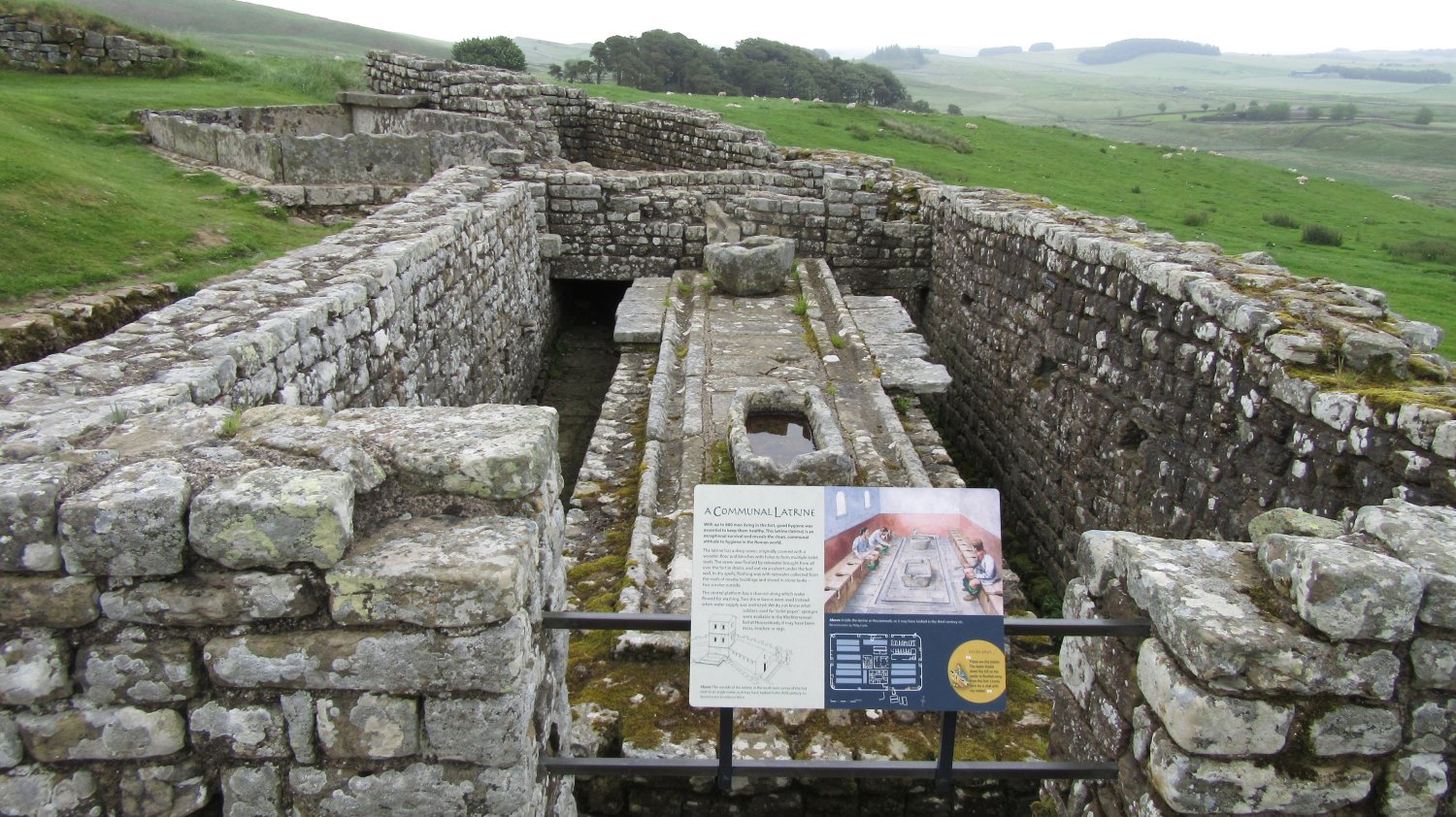
Safety when I am out and about
- I carry my valuables in an ‘anti-theft’ cross-body bag, with slash-proof straps (makes it harder for a ‘snatch and grab’ thief, than does a shoulder or handbag; also provides RFID blocking )
- at ATMs, especially on the street, I check for signs of possible skimming, and I keep alert to passers-by (skimming can happen anywhere – even in my home city, Melbourne )
- whenever I am out walking in a city overseas, I need to ask myself: "Where the bloody hell does the traffic come from… my left… or my right?" (get this wrong, and I could end up in Emergency, or at the Morgue )
- depending on where I am, and what I am doing, I may choose to dress to ‘blend ’ with the crowd, and not stand out like a traveler or tourist (sometimes this is not easy, and sometimes it may not matter so much – HOWEVER, in some destinations, tourists can be targets of criminals, of anti-tourism protestors, and of 'tricky' merchants )
Your Take-outs
"Safe travels " is often part of the farewell ritual, as we leave family and friends, to journey out into the big wide world.
'Safe travels' usually happen, until they don’t! This Post is about recognising what we can do to 'stay safe', while we travel. Here are the key take-outs:
- travel can come with some risks to our safety, but by being sensible, we can avoid most of these
- if we are suffering from travel fatigue, or jet lag, our mental capacity is likely to be compromised, sometimes severely, which can make us vulnerable to all manner of things
- many travelers will experience ‘brain (or ‘cognitive’) overload’, as they are regularly bombarded with volumes of new information, resulting in their memories becoming mixed and confused
- good planning and preparation can help us to avoid becoming an ‘unwanted’ statistic during our travels – I think of my travel safety in ‘clusters’:
- my personal safety
- safety at an airport/transit hub
- destination safety
- protecting my data and ID
- safety at my accommodation
- safety when I am out and about
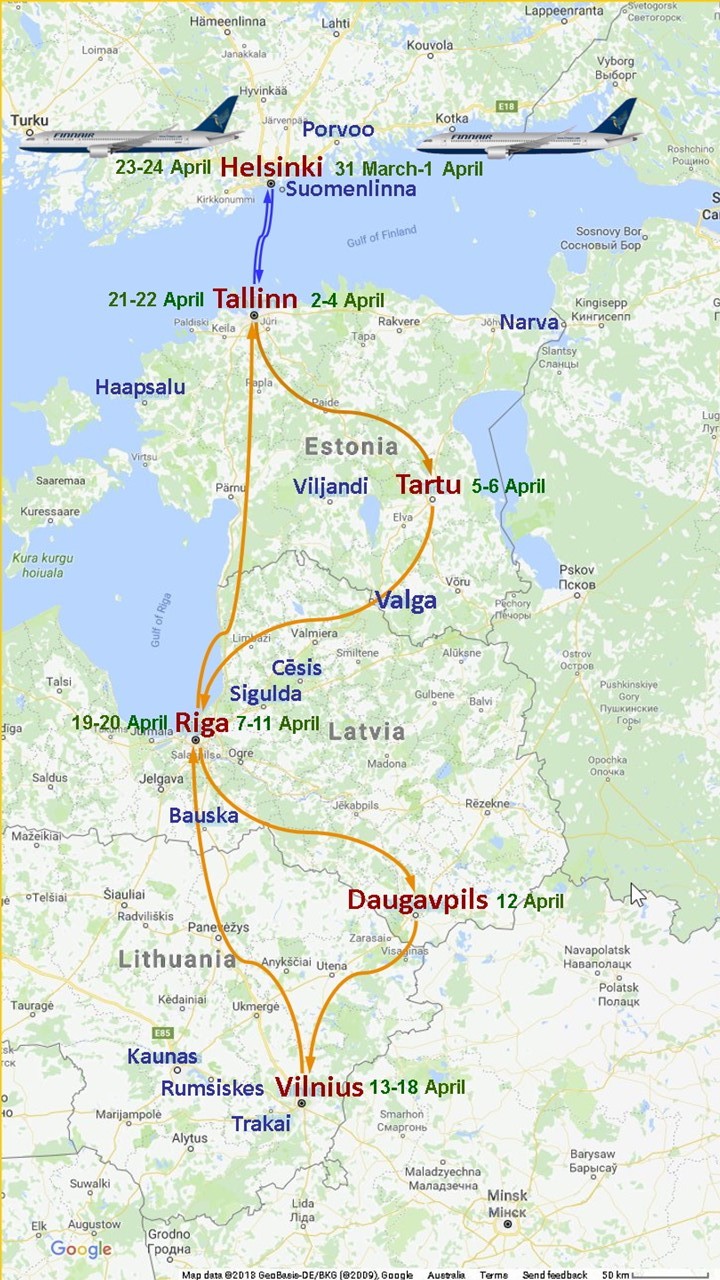
Names in Red = where I stayed; Names in Blue = day visits
Your Feedback, please…
Firstly, my thanks to you, for reading my post.
Now, the really BIG question is:
“What value has this Post offered you? “
Has it helped you, or do you need more information?
If you wish to offer some feedback, or to read the feedback from others, please follow the link below to the Feedback Page:
Why Your Feedback is Important to Me
In real life, I am an agile Change Manager, so I know that feedback is an essential part of the improvement process.
Your feedback can help me improve both the content of this Post, and also of future Posts.
If you have a thought, or a question, about the post content, or if you would like to provide feedback about something else, please follow the link to the Feedback Page.
I do look forward to hearing from you, especially if we can make improvements that will help fellow travelers on the road.
Marlene
Please note, before any feedback is posted, it will be moderated. When I am moderating, I may need to contact you, which is why I ask for your email address.
Your email address will
Here is a link to the my afootwego.com CONDITIONS for POST FEEDBACK (2½ mins to read).
Should you wish to peruse them, here are links to my afootwego.com PRIVACY POLICY and Website TERMS and CONDITIONS of USE.
Stuff to Know…
Before You Go…
- NOTE:
- This site is specifically designed for responsive display on a mobile device
On devices with wider screens, it will appear as a single, center-aligned column
